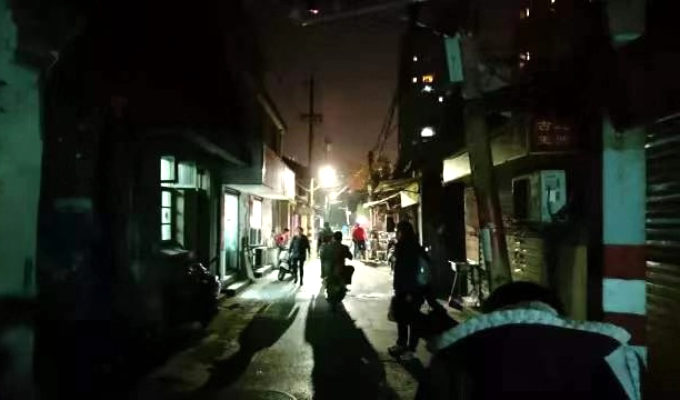In the ghost market of Nanjing, there is only that which you would not dream of buying, and so too nothing that you cannot buy.
Such is the attraction for many; young people who don’t spend time at bars, don’t play games and don’t work overtime, but can’t sleep and have nothing to do. Visiting the ghost market (鬼市) is the latest choice for time out in the middle of the night.
The first origins of such ghost markets are to be found in the late Qing Dynasty, specifically 1936, in the publication “Tianjin Tour”, which noted that in the southwest of the city, “you will soon encounter a very lively and all-inclusive market”.
Also referred to as a “Dawn Market” (晓市) and traditionally a place for the less-than-wealthy to sell personal items to supplement a meagre income, this original market was located next to an execution ground for prisoners, hence the ghost market’s moniker; people refer to the market as “doing business with ghosts”. On the other hand, the less gruesome-minded say the market is named such as it only emerges in the small hours, much like its spirited friends.
Going some way toward explaining their new-found popularity with the young is the fact that ghost markets have an association with the “Jianghu” (江湖), self-contained sections of society operating independently of the mainstream, hiding from the modern business world and out of reach of the law.
The ghost market of Nanjing is weekend-only commerce, usualy popping up in the area of Shuixi Men (水西门), Yet, its specific location cannot be determined; this week, it may be on the bridge; next week, on nearby Anpin Jie (pictured); just as in the true spirit of the original ghost markets.
Location not withstanding, those who venture forth in the wee hours are soon enlightened as to the four unwritten rules of commerce therein:
- There is no going back on your word; once the seller agrees, the transaction must be completed
- They who hold an item in their hands gets first refusal
- Don’t ask about the source of the goods
- There are no money-back guarantees
Food stamps, postage stamps, old telephones, pots and pans, dubious jade, wolf-teeth necklaces, dysfunctional cine cameras, commemorative Olympic beer mugs, old-fashioned lighters… Whether they be antique is not important. Counting most is that there is everything here; even mud-caked roses, likely discarded by a broken heart.
Under the yellow streetlights, customers come from all directions, wondering if the treasure is plastic or ivory. Some are beginners, carrying a school bag for their loot. Others are professionals, seasoned treasure seekers like gold miners wearing a helmet with lights on their heads.
Incompatible with a modern city, perhaps, the ghost market is in fact but another portrayal of Nanjing; more than worth an hour or 2 out of our fast-paced urban lives spent therein.









